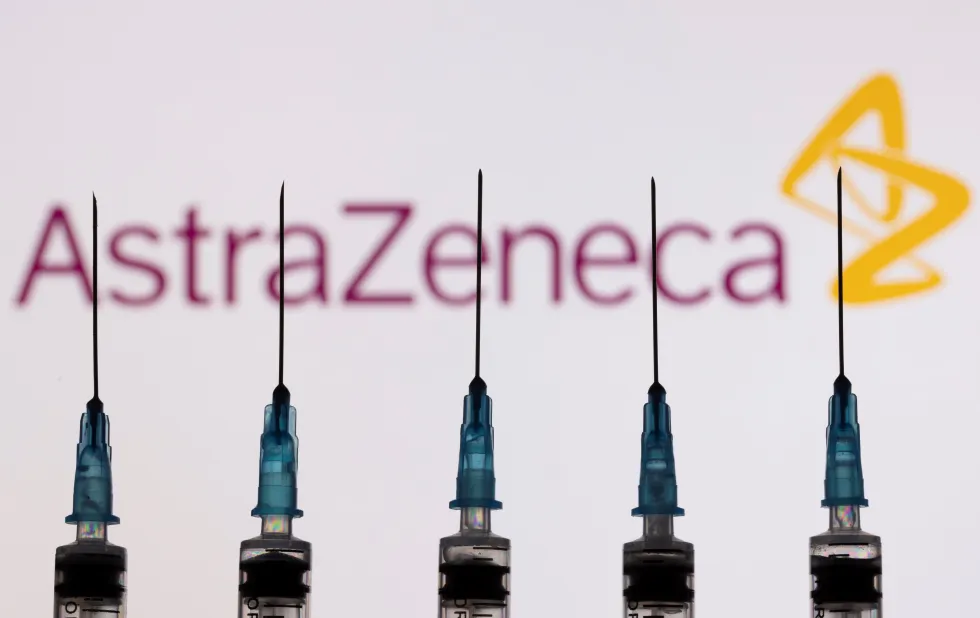By: Nabeela Khan
May 2 2024
 Syringes in front of AstraZeneca's logo. (Source: Reuters)
Syringes in front of AstraZeneca's logo. (Source: Reuters)
On Tuesday, April 30, several news reports stated that AstraZeneca’s COVID vaccine, developed in partnership with Oxford University, could cause Thrombosis Thrombocytopenia Syndrome (TTS). It was stated that the vaccine maker admitted this for the “first time”. TTS is a rare condition that causes blood clots in the brain and abdomen and a loss of platelet count.
 Screenshot of some of the newspaper headlines.
Screenshot of some of the newspaper headlines.
AstraZeneca’s vaccine was sold under the name Covishield (developed by the Serum Institute) in India and Vaxzevria in Europe. Naturally, this said ‘disclosure’ led to a lot of online chatter, with conversations revolving around the safety and efficacy of the vaccine.

Screenshot of one of the posts on X. (Source: X/Screenshot)
One common question that worried millions of people was whether they were still at risk and was this revelation really the first big one, as claimed? We spoke to doctors and scientists to understand this better.
But before that, let’s look at what triggered this sense of panic.
The Telegraph reported on April 30 that the pharmaceutical giant has admitted in court that in “very rare cases”, its COVID vaccine can cause blood clot-related side effects. About 51 cases have been filed in the U.K. High Court against AstraZeneca over claims that its vaccine caused death and serious injury. The victims have sought damages worth up to 100 million pounds.
In August 2021, AstraZeneca’s vaccine package insert for the vaccine recipients in the United Kingdom stated TTS as a rare side effect. The same can be seen on the package insert from November 2021 in the Philippines.
In India, the Serum Institute’s fact sheet in October 2021 clearly stated, “Very rare cases of blood clots with low levels of blood platelets have been observed following vaccination with ChAdOx1 nCoV-19 Corona Virus Vaccine (Recombinant). The majority of these cases occurred within the first 21 days following vaccination and some cases had a fatal outcome (sic).”

Screenshot of the fact sheet by Serum Institute. (Source: Serum Institute of India)
In 2022, the World Health Organization also stated, “A very rare adverse event called Thrombosis with Thrombocytopenia Syndrome (TTS), involving unusual and severe blood clotting events associated with low platelet counts, has been reported after vaccination with this vaccine.” It added, “In countries with ongoing SARS-CoV-2 transmission, the benefit of vaccination in protecting against COVID-19 far outweighs the risks.”
Speaking to Logically Facts, Prof. Hassan Vally, associate professor in epidemiology at Deakin University, said, “The fact that the side effects from the AstraZeneca vaccine have been acknowledged in a court in the U.K. has been used by those with other agendas and misrepresented as something that AstraZeneca were hiding and forced to admit. This fits into the narrative that people were forced to take a vaccine that harms them, which is completely untrue (sic).”
Commenting on the rarity of the side effects, Vally said, “It has been known and acknowledged widely that the AstraZeneca vaccine can, on very rare occasions, cause TTS. This has never been in contention since it was identified when the vaccine was rolled out globally. The issue is that the benefits of the vaccine far outweigh the likelihood of side effects.”
Prof. Vally said, “The risk of TTS has shown to be the highest in the first few weeks after getting the vaccine.”
Indian virologist Dr. Jacob John, too, emphasized that the risk is short-lived. He said, “COVID pathology can be long-term, but vaccine adverse effects are mostly short-term. The offending substance is given once, and its concentration steadily declines with time. Viruses multiply over time. Vaccine ingredients dissipate with time.”
A senior Hyderabad-based cardiologist, Dr. Mukherjee Madiwada, in a thread on X (formerly Twitter), said that the clots don’t form three years after the vaccination. He underscored that people shouldn’t panic and that the side effects related to the vaccine are very rare.
“The incidence of this complication is about 3 to 15 cases per ten lakh vaccinations. Calculated for 100 cr vaccinated population, it translates to 150 heart attacks at the worst,” he wrote.

Screenshot of Dr. Madivada’s post on X. (Source: X/@drmssm)
A review of rare adverse blood coagulation events in the U.K. and the European Union published in April 2021 by the Global Advisory Committee on Vaccine Safety stated the symptoms of TTS could appear between four to 20 days after vaccination.
In a statement to The Hindu Businessline, AstraZeneca stated, “From the body of evidence in clinical trials and real-world data, the AstraZeneca-Oxford vaccine has continuously been shown to have an acceptable safety profile, and regulators around the world consistently state that the benefits of vaccination outweigh the risks of extremely rare potential side effects.”
In 2022, the British Medical Journal (BMJ) flagged TTS as a possible risk linked to the AstraZeneca-Oxford vaccine. Researchers called this a “very rare” syndrome. The Global Advisory Committee’s review also stated that “the risk of TTS with Vaxzevria and Covishield vaccines appears to be very low.” This data suggested that the risk is approximately four cases per million adults (1 case per 250,000) in the U.K., while it is estimated to be approximately one per 100,000 in the European Union (EU).
In an article published on June 18, 2021 in The Conversation Prof. Vally argued that the risk of dying from TTS is about one in two million based on data from Australia. This data was based on two deaths after 3.8 million doses administered in Australia.
In an email conversation, he elaborated, “When TTS as a possible side effect of the AstraZeneca vaccine was identified, many countries chose to take an extremely cautious position to suspend the delivery of the vaccine whilst this was investigated further. These suspensions were, in most instances, temporary.”
(Logically Facts has reached AstraZeneca for a comment. The story will be updated if and when we receive a response.)